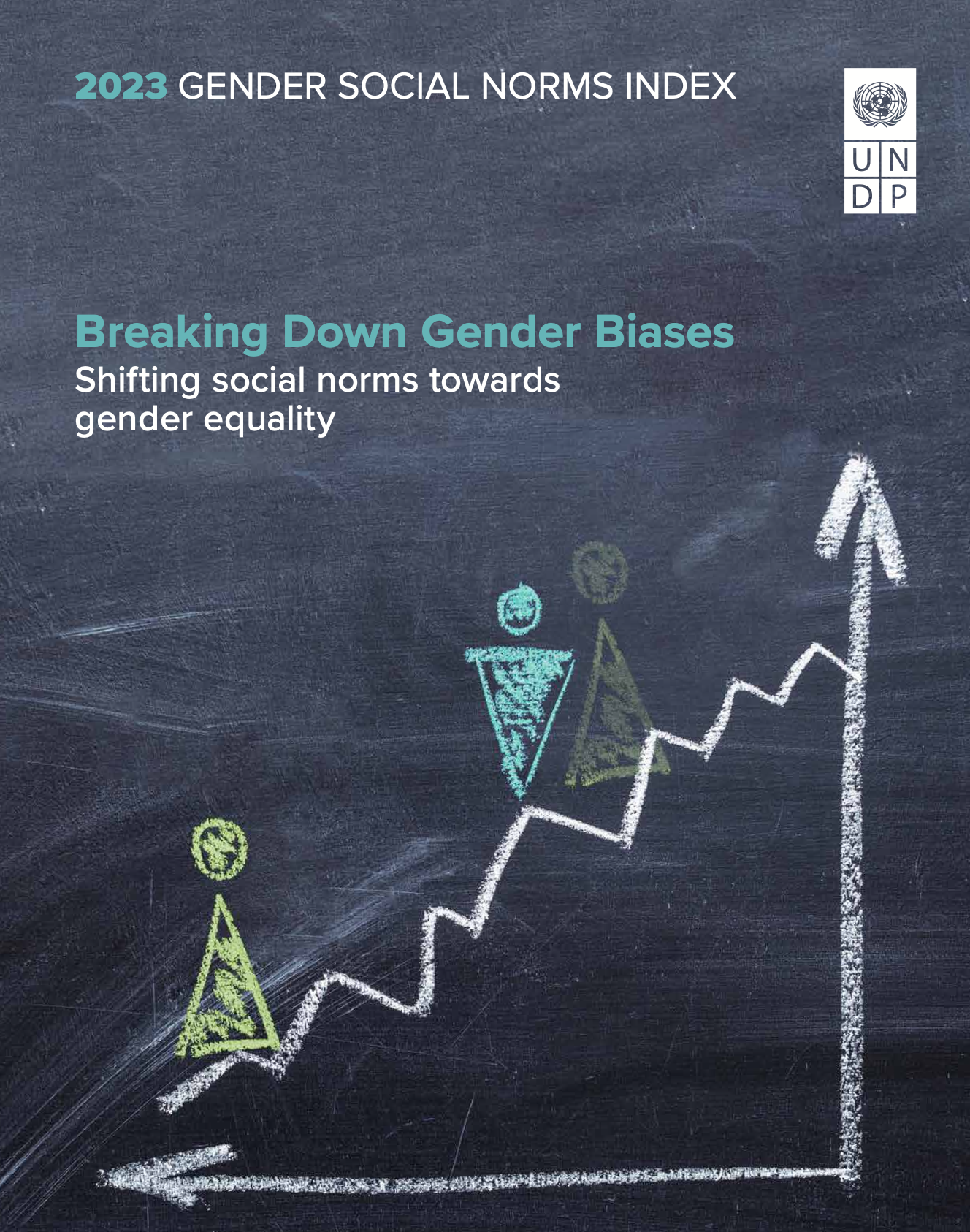Worldwide, nearly nine out of 10 people hold at least one fundamental bias against women, according to the 2023 Gender Social Norms Index from the UN Development Programme (UNDP). That number is alarming enough, but it’s all the more shocking when we consider another finding: The percentage has barely budged in a decade.
UNDP’s index measures four key dimensions of bias: political, educational, economic and physical integrity. It covers 80 countries and accounts for 85% of the world’s population. The 2023 study concludes simply that “gender bias is a pervasive problem worldwide.”
When we – men and women – hold biases against women it means we undervalue women’s abilities and rights in society in comparison to men. Even when a country has laws and policies that enumerate equal rights for women, whether that’s access to education, voting rights or equal pay, bias acts insidiously to undermine them. Societal expectations and norms erect obstacles that limit women’s choices, opportunities, achievement and prosperity.
Nearly half the world’s population believe that men make better political leaders than women and two-fifths believe men make better business executives, the study found. A woman may have the right – and the qualifications – to run for office or run a corporation, but she won’t succeed if we bring our biases to the voting booth or the boardroom.
The last decade has seen individual milestones and the emergence of powerful grassroots movements to advance the rights of women: #MeToo, Latin America’s Green Wave, the HeforShe Initiative, Time’s Up, Hillary Clinton’s presidential run and the Women’s March.
Yet the percentage of women as heads of state or government remains stubbornly stagnant at 10%, the same as it was in 1995, and women hold just 28% of managerial positions in the workplace, the study found. And in some places, waves of feminism have met with harsh backlash that resulted, in some cases, in repeals of hard-earned rights.
Bias against women, it seems, is deeply entrenched. The 2014 report found that 87% of people held at least one bias against women compared with 85% in 2023. The study noted backsliding in Chile, South Korea, Mexico, Russia and Kyrgyzstan.
In the end our society is the big loser when women can’t reach their full potential. Gender bias deprives us of women’s leadership, their perspectives, their experiences and their economic productivity.



